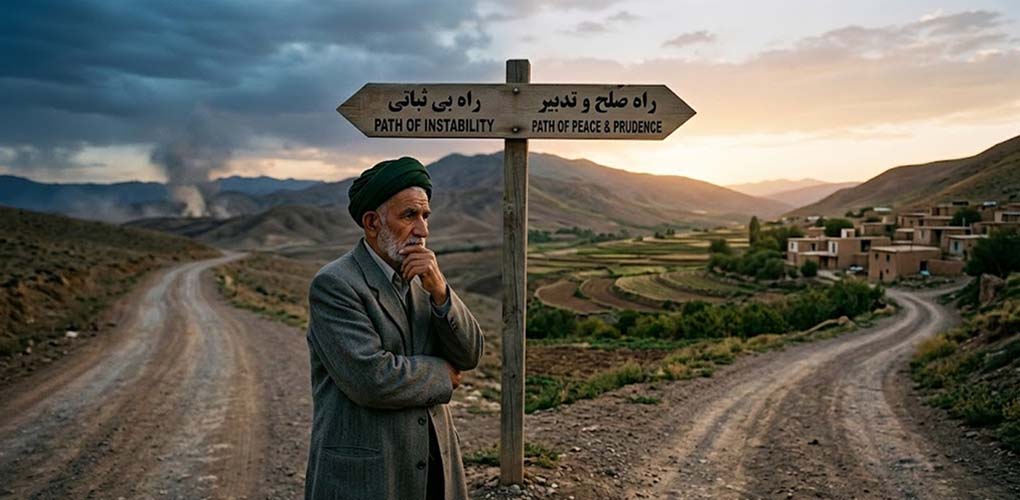 Najmuddin A Farooqi.
Najmuddin A Farooqi.
In the intricate web of Israeli politics, the growing influence of far-right ideologies has raised profound questions not only about the country’s democratic future but also about the moral foundations of Judaism itself. As modern Israel grapples with internal divisions and international scrutiny, it faces a pivotal moment, will it adhere to the ancient ethical teachings that form the core of Jewish identity or will it allow political expedience and ultranationalism to override them ?
At the center of this moral and political tension is the rise of religious nationalism and its selective interpretation of Jewish values. While hardline figures within the government stoke conflict and controversy, the broader Jewish population in Israel remains ideologically diverse and in many ways, resistant to extremism. Understanding this complex landscape requires a return to first principles: the historical and ethical roots of Judaism, the spectrum of religious identity within Israel and the growing dissonance between faith and politics.
The Moral Core of Judaism
Judaism, one of the oldest monotheistic religions in the world, has long been anchored in a profound ethical tradition. Central to this is the Torah and particularly the Ten Commandments, given to Moses ؐ on Mount Sinai. These commandments emphasize not only devotion to God but also interpersonal ethics; prohibitions against murder, theft, lying and coveting, commands to honor parents and observe the Sabbath (the weekly holiday).
This framework, foundational to Jewish law and morality, has influenced legal and ethical systems across civilizations. At its core lies a deep concern for justice, compassion and communal harmony values that transcend time and geography.
Yet today, there is a widening gap between these ideals and the actions of some political actors who claim to represent religious Judaism.
The Religious Spectrum in Israeli Society
Contrary to the image projected by its most vocal political figures, Israeli Jewry is far from monolithic. It encompasses a broad range of beliefs and practices, typically categorized into four major groups:
- Secular Jews (Hiloni) – Representing around 43% of Israeli Jews, this group identifies culturally with Judaism but largely separates religion from politics. Many advocate for pluralism and a democratic state structure.
- Traditional Jews (Masorti) – About 23% of Jews fall into this category. They observe key religious customs but often integrate them with modern, secular lifestyles.
- Religious Zionists (Dati Leumi) – Comprising around 11%, this group blends religious observance with strong nationalist sentiment. They often support Jewish settlement in the West Bank and are a key base for right-wing political parties.
- Haredi (Ultra-Orthodox) Jews Approximately 10% of the population, this group maintains strict religious observance and interestingly, often distances itself from political Zionism altogether.
This diversity is crucial to understanding the internal debates over what it means to be a Jewish state. It also shows that while ultranationalism may dominate headlines, it does not reflect the consensus of Israeli society.

Nationalism vs. Religious Ethics
The increasing influence of religious nationalism in Israeli politics has led to actions and policies that appear to contradict the ethical imperatives found in Judaism. This includes; The use of violence or the failure to condemn it unequivocally,
Support for displacement of Palestinian families from East Jerusalem, Desecration of holy sites for political theater and the normalization of racist rhetoric under the guise of national security.
Such actions are difficult to reconcile with commandments such as “You shall not murder,” “You shall not bear false witness,” and “You shall not covet your neighbor’s house.” Critics argue that these are not merely political missteps, but moral failures that erode the soul of the nation.
Israeli sociologist Eva Illouz has called this phenomenon a form of “Jewish fascism”, warning of an ideological blend of religious identity with authoritarian, exclusionary nationalism.
Resistance From Within
Important, opposition to ultranationalist policies is not limited to international observers or Palestinian communities. Many Israeli Jews from secular liberals to ultra-Orthodox anti-Zionists have openly opposed this shift. Secular Israelis frequently protest against government actions that undermine democracy or human rights.
Haredi groups, while often socially conservative, have resisted the Zionist framing of Judaism as a political tool. In one incident anti-Zionist Haredi Jews physically confronted members of the political establishment, denouncing them as violators of Torah principles. Liberal religious leaders and centrist politicians continue to argue for a Judaism that embraces justice, compassion and pluralism. These internal dissenting voices reveal that the moral conversation within Judaism is far from settled and that many Jews reject the notion that religious faith must be tied to political extremism.
Global Implications and International Hypocrisy
As Israel drifts further right under ultranationalist influence, its international relationships are being tested. In 2025, countries including the UK, Canada, Australia and New Zealand imposed sanctions on hardline members of the Israeli government for inciting violence and undermining international norms.
The European Union followed suit, criticizing not just isolated incidents but a systemic pattern of behavior incompatible with democratic values and human rights. UN officials have gone as far as to label some rhetoric from Israeli politicians as incitement to hatred.
However, the international community has not been consistent. Most notably, the United States while decrying terrorism and authoritarianism elsewhere continues to provide unwavering support to Israel’s most controversial figures, often turning a blind eye to human rights violations.
This contradiction has not gone unnoticed. When political leaders who support displacement, violence or open racism are bolstered by Western powers, it raises uncomfortable questions; Is this not the definition of hypocrisy ? How can democratic nations preach equality and peace while empowering those who act in clear opposition to those very ideals ?
A Turning Point for Judaism and Israel
What is at stake is far greater than any one election cycle or politician. The current trajectory of Israeli politics is forcing a moral reckoning, can the state of Israel founded as both Jewish and democratic continue to honor the spiritual and ethical tenets of Judaism while pursuing policies that many argue are neither just nor moral ?
Judaism at its heart commands care for stranger, mercy for oppressed, unwavering commitment to truth and justice. As such, the current direction of political life in Israel is not only a geopolitical concern, but a theological and moral crisis.
This is not a universal crisis, however. The fact that Ben-Gvir’s party holds only 6 out of 120 seats in the Knesset a mere 5% is a crucial reminder that extremism does not define the Israeli majority. Most Israelis, especially the secular and traditional sectors, continue to support a more inclusive, pluralistic vision of society. This quiet majority remains a source of hope for those who believe in a peaceful and democratic future.
Conclusion: A Test of Values
The true question facing Israel today is not whether it can continue to exist as a powerful nation as it clearly can. The question is what kind of nation it chooses to be. Will it be one rooted in the ethical and spiritual vision of the Torah, or one where religious language is used to justify exclusion, violence and supremacy ?
As the balance of global power begins to shift toward a more multipolar world order, superpowers must reconsider whom they empower and why. If Western nations continue to support regimes that undermine the very values they claim to uphold, their credibility and influence will continue to erode.
For Israel, the path forward must be guided not only by strategic interest but by deep introspection. The ancient words inscribed on Sinai still speak today, “Justice, justice you shall pursue.” The question now is whether anyone is listening.



